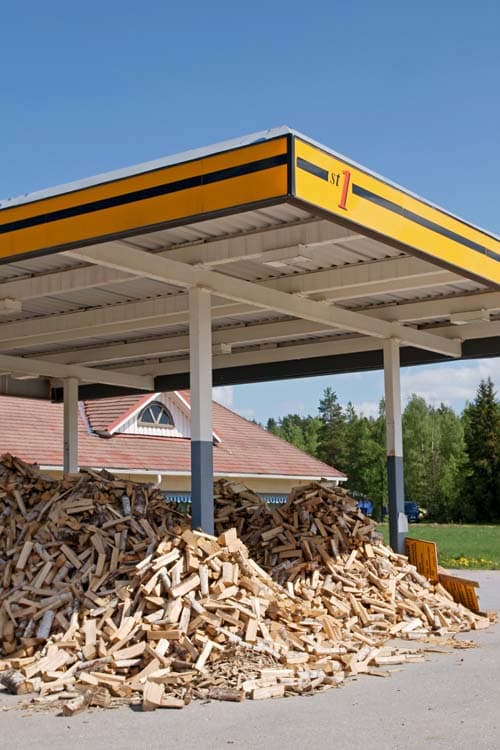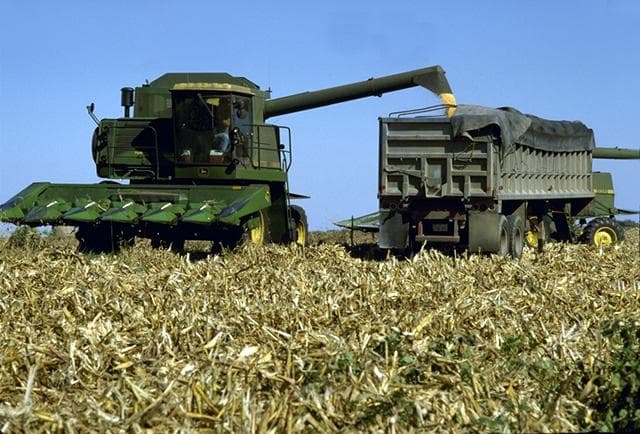Biofuel - Alternative Fuel
Biofuel is a variety of fuel created from organic materials, or biomass.
Biomass simply refers to anything that is (or was) at some point alive, particularly plants and animals.
Biomass can come in the form of solid, gas, or oil.
Understanding Biofuel and Its Role in Combating Climate Change
Biofuel is a type of renewable energy derived from organic materials, known as biomass, which includes plant and animal matter. Common sources of biofuel include crops like corn, sugarcane, and soybeans, as well as agricultural residues, algae, and even waste products. The process of converting these materials into fuel involves biological processes like fermentation and chemical reactions such as transesterification. The resulting biofuels, including ethanol and biodiesel, can be used as alternatives to traditional fossil fuels in transportation and energy production. By utilizing carbon captured during the growth phase of these plants, biofuels help create a more balanced carbon cycle, making them a promising solution for reducing greenhouse gas emissions and combating climate change.
A New Trend
Fuel made from these materials is gaining more popularity by the day.
The reason for this is not just due to the fact that it is a cheaper source of fuel, but because people are finally starting to realize the negative impact that greenhouse gases and other emissions are causing to the environment and the atmosphere.
Now that individuals are becoming more aware of the fact that the concentration of carbon dioxide is rising rapidly and that the days are getting hotter and hotter, they are starting to question what the future may hold for generations to come.

How it is Created
Biofuel is created by using a fermentation process.
The process does vary depending on the material used.
For example, bio-ethanol is produced by extracting carbohydrates from sugar or fruits, whereas bio-diesel is produced by extracting oils from animal fats or vegetables.

Different Varieties of Biofuel
Bio-diesel has become an additive in regular diesel in some places, making it cheaper and a great way for vehicles that run on diesel to travel without emitting too much carbon dioxide.
Ethanol, as mentioned before, is also great when produced from biomass.
This allows cars that run on gasoline to travel without being too much of a burden on the environment. The only drawbacks with bio-ethanol and bio-diesel are:
- The cost for the fuel may be a bit more than regular fuel, depending on your relative location. The prices for this fuel can vary quite a bit. For example a study done by the University of California at Berkeley indicates that the Midwest states in the U.S. (where the fuel would typically be produced) will be charged roughly 30¢ less than regular gasoline, whereas the west coast would be charged roughly 35¢ more.
- Another problem is that it is not as effective as regular fuel. It doesn’t last as long, which means you would have to fuel up more frequently.

Not a Perfect Solution Yet
To sum up, this alternative fuel does in fact appear to be a better solution for generations to come as it will help stop climate change.
The current problem, however, is that consumers may not be ready to spend slightly more on this fuel than regular fossil fuels.
Ultimately, it is really just a matter of time before it becomes more popular in the market.
It should also be mentioned that algae fuel is another possible remedy to the climate crisis.
A Crucial Strategy for Combating Climate Change
Investing in biofuels is a crucial strategy for combating climate change because biofuels offer a renewable alternative to fossil fuels. Unlike fossil fuels, which release carbon dioxide that has been stored underground for millions of years, biofuels are derived from organic materials like plants and agricultural waste. These materials absorb carbon dioxide from the atmosphere during their growth, creating a more balanced carbon cycle when they are converted to fuel and burned. By replacing fossil fuels with biofuels, we can significantly reduce greenhouse gas emissions, thereby mitigating the effects of global warming. Additionally, biofuels can be produced locally, which supports energy security and reduces dependence on foreign oil.
However, the development and deployment of biofuels are not without challenges. One major issue is the competition between biofuel production and food supply. Crops like corn and soybeans, which are commonly used for biofuel production, are also staple foods. Diverting these crops to biofuel production can drive up food prices and lead to food scarcity, especially in developing countries. This "food vs. fuel" debate highlights the need for sustainable biofuel production practices that do not compromise food security. Advances in technology, such as the development of second-generation biofuels from non-food biomass like agricultural residues and algae, are essential to address this concern.
Furthermore, the environmental impact of biofuel production must be carefully managed. Large-scale biofuel farming can lead to deforestation, loss of biodiversity, and water resource depletion if not conducted sustainably. For instance, converting forests into biofuel crop plantations releases significant amounts of carbon stored in trees and soil, negating the carbon savings from using biofuels. To maximize the climate benefits of biofuels, it is crucial to implement best practices in land use, promote sustainable agricultural methods, and ensure that biofuel production does not encroach on natural habitats. By addressing these issues, we can harness the potential of biofuels to reduce greenhouse gas emissions while safeguarding food security and the environment.
Further Reading and Sources
- Home
- Alternative Energy
- Biofuel
Join the Community and Newsletter (4500 Subscribers)
You can subscribe to my Substack Page or see the archives of previous posts. More great content coming soon!
Recent Articles
-
Quotes on Climate Change
Nov 24, 25 07:29 PM
Here is a list of quotes on climate change divided into different categories, many of which include people you have previously heard of. -
Climate Change Guide
May 09, 25 08:36 PM
The Climate Change Guide is your guide to a more sustainable future, and will provide you with all relevant information on mankind's greatest challenge. -
Laurent Cousineau
May 09, 25 08:23 PM
Here is information about the founder of the website Climate Change Guide, Laurent Cousineau. He created it in August 2011. -
Climate Change Quotes by Scientists Around the World
Aug 24, 24 02:01 PM
Explore impactful climate change quotes by scientists. Discover the wisdom and insights of experts advocating for a sustainable future.




